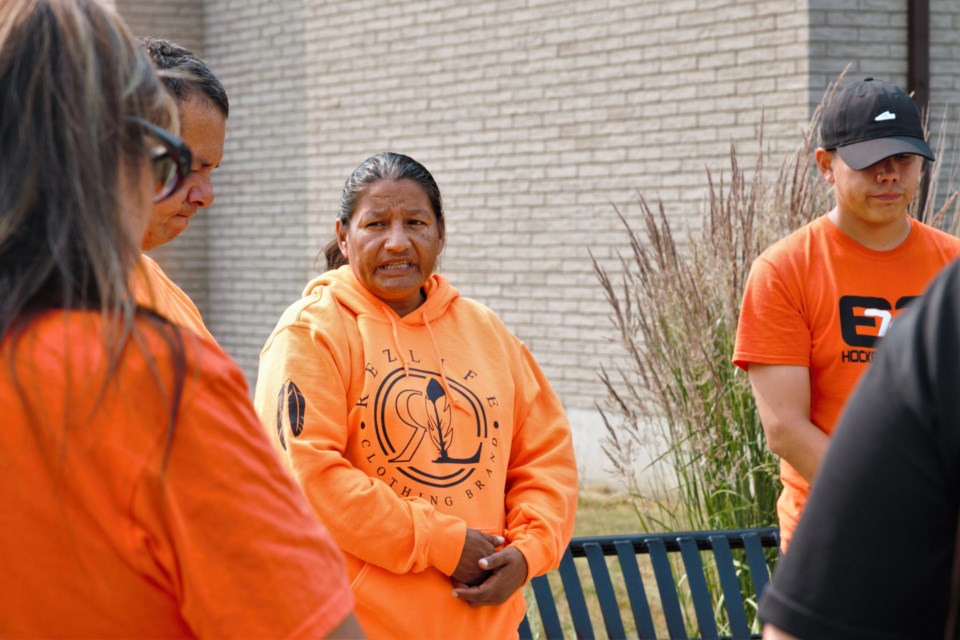THUNDER BAY – One woman’s walk from Saskatchewan to Ottawa to honour residential school victims has become a journey of healing that’s resonated with communities along the route and gathered a small convoy of supporters
Patricia Ballantyne began her walk in the wake of the discovery of unmarked grave sites at residential schools, visiting former sites along the way, speaking with fellow residential school survivors, and hoping to conclude with a sit-down with Prime Minister Justin Trudeau.
Originally from Deschambault Lake, Saskatchewan, a few hours northeast of Prince Albert, Ballantyne attended the Prince Albert Indian Residential School for ten years of her childhood.
“After the news of the grave site that was found in Kamloops, I started thinking about all the little ones there, all the parents, and how terrifying it was for the kids,” she said. “That just brought back all of the memories that I had of my childhood in the residence. That just bubbled up and I couldn’t hold it back any more – I felt like I needed to say something.”
She channeled that feeling into a cross-country walk after experiencing a dream, she said.
“I know there’s a lot of people that don’t believe in dreams and visions, but we do – we’re very spiritual people. After the news, I dreamt of my grandma and asked her what I should be doing. She told me, go for a walk.”
The Walk of Sorrow has resonated in communities along the route, gathering momentum and a small convoy of supporters after Ballantyne began in Prince Albert with her step-daughter, niece, and a friend.
The group numbered 16 by the time it reached Thunder Bay, with several vans driving behind walkers.
“It’s quite an experience – there were only four of us walking, and we made it to Regina in a week,” Ballantyne said. “Then we started picking up people who wanted to join our walk along the way. They’re all healing in their own way – we have residential school survivors, ‘60s scoop survivors, people who have been in foster care.”
Others have joined on behalf of parents or grandparents who can’t walk themselves, she said, coming from as far afield as Pukatawagan, Manitoba.
Ballantyne said there’s a need to share the stories of survivors and honour the grief of Indigenous communities as discoveries of grave sites continue across the country.
The journey has also resonated with non-Indigenous Canadians.
“It’s just been really uplifting and all through the way, we’ve been getting support through the different leaderships – even mayors and police officers, everyone has been very supportive,” Ballantyne said.
Many Canadians had only a superficial understanding of the history of residential schools that’s been shaken by the recent discoveries, she believes.
“I keep encouraging people – those ones that don’t understand or don’t know about residential schools – I encourage them to take in workshops, find authors who were in residential schools… sit and listen to our stories of how we were treated.”
The group spent a couple of rest days in Thunder Bay this week, visiting the pow wow grounds at Mount McKay, the Terry Fox memorial, and paying respects at the site of the former St. Joseph’s residential school.
The group hopes for a meeting with the prime minister when it arrives in Ottawa in several weeks, saying discussions were ongoing.
Ballantyne hopes to talk to Trudeau about the child welfare system, both reforms she believes are needed today and action to address the history of Indigenous children who were adopted out of province or out of country, she said.
The Walk of Sorrow group documents its progress on its Facebook page, and is also active on other forms of social media.
